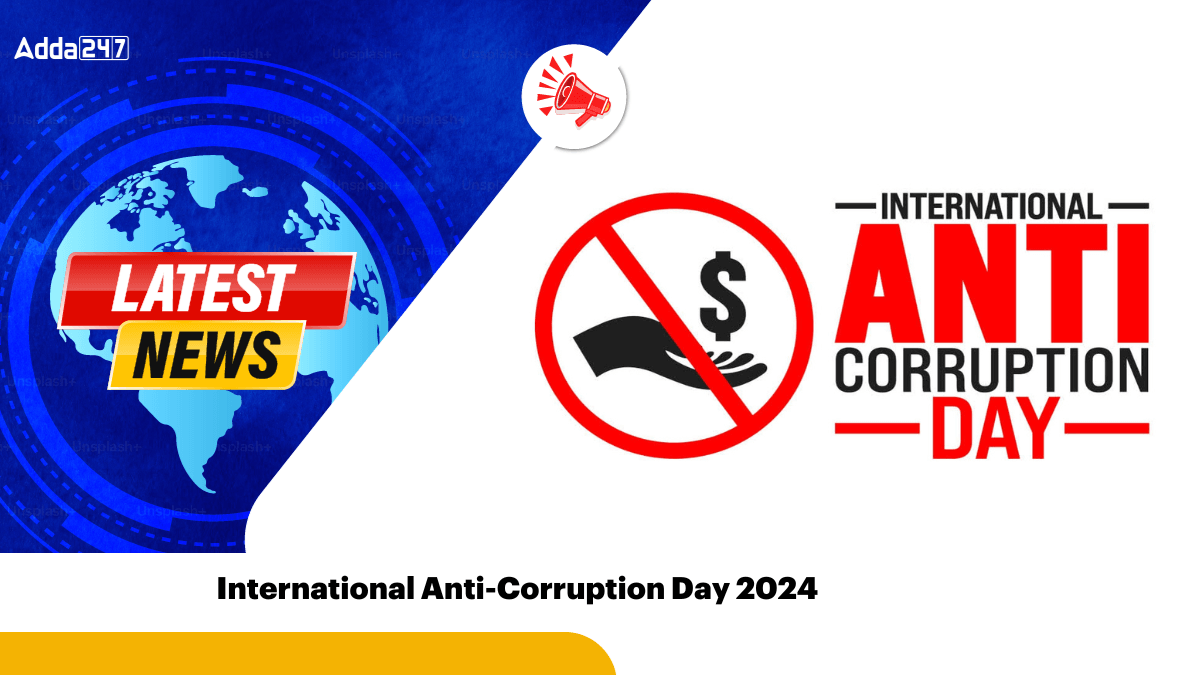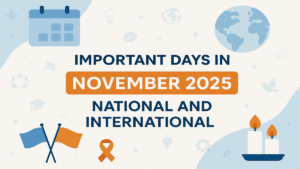International Anti-Corruption Day is observed globally on December 9 every year to raise awareness about the devastating impact of corruption and to emphasize the importance of transparency, accountability, and integrity in governance and society. This day mobilizes individuals, governments, and organizations worldwide to combat corruption and its far-reaching consequences.
Background of International Anti-Corruption Day
- Proclamation in 2003: The United Nations General Assembly designated December 9 as International Anti-Corruption Day through Resolution 58/4, which also adopted the United Nations Convention against Corruption (UNCAC).
The primary aim of this day is to create global awareness about the prevalence of corruption and the critical role of UNCAC in combating it. - A Global Reminder: Since its inception, December 9 serves as a powerful reminder of the pressing need to prevent and combat corruption worldwide. It emphasizes fostering integrity, accountability, and good governance to ensure a fairer and more just society.
Significance of International Anti-Corruption Day
- Promoting Transparency and Accountability: Corruption undermines democratic institutions, hampers economic growth, and erodes public trust. This day focuses on promoting transparency and making governments more accountable to their citizens.
- Empowering Youth: The day recognizes the role of young people in creating a corruption-free future. Youth are encouraged to demand integrity, justice, and accountability in governance and society.
- Strengthening Governance: By promoting strict legal frameworks, the day seeks to enhance governance structures and ensure that corruption-related challenges are effectively addressed.
- Highlighting Social and Economic Impact: Corruption obstructs economic development, weakens societal peace, and exacerbates inequality. The day links anti-corruption initiatives to security, societal harmony, and sustainable development.
- Global Solidarity: It fosters international cooperation by linking countries in their shared fight against corruption and unethical practices.
International Anti-Corruption Day 2024 Theme
The 2024 theme, “Uniting with Youth Against Corruption: Shaping Tomorrow’s Integrity,” emphasizes the critical role of youth in combating corruption.
- Objective of the Theme: The theme seeks to educate and empower youth about the consequences of corruption and inspire them to take meaningful actions to eliminate it.
- Role of Youth: Young people are seen as agents of change, capable of influencing policies and fostering integrity in their communities. By involving youth, anti-corruption efforts become more inclusive and effective.
- 2024 Campaign: This year’s campaign will pave the way for discussions at CoSP11 (Conference of the States Parties to the UNCAC), where youth will appeal to decision-makers for stricter anti-corruption measures.
What is Corruption?
Corruption is defined as the misuse of entrusted power for personal gain. It manifests in various forms, including bribery, fraud, embezzlement, and nepotism.
- Impact of Corruption:
Corruption undermines trust, diminishes democracy, hampers economic growth, and exacerbates inequality and social fragmentation.
Understanding the Cost of Corruption
Corruption has widespread consequences that affect all aspects of society.
Political Costs:
- Weakens the rule of law.
- Limits freedoms and erodes citizens’ trust in governance.
Social Costs:
- Creates public distrust in institutions.
- Causes social upheaval and political instability.
Economic Costs:
- Hinders investment opportunities and economic progress.
- Leads to unequal distribution of wealth.
Environmental Costs:
- Reduces the prospects of a sustainable ecosystem and a healthy future.
Adverse Effects of Corruption on Society
- Erosion of Trust: Corruption diminishes public confidence in government, resulting in social unrest and political instability.
- Economic Obstruction: It discourages investment, slows down economic growth, and leads to unequal wealth distribution.
- Weakened Accountability: Corruption disrupts systems that safeguard human rights and hinders access to public services for vulnerable groups.
- Increased Inequality: It provides unjust benefits to powerful corporations at the expense of smaller enterprises, exacerbating economic disparities.
- Decline in Quality of Life: Corruption negatively affects critical sectors like healthcare and education, reducing overall quality of life.
Why is it Essential to Stop Corruption?
Corruption represents the ultimate betrayal of public trust and has profound implications for development and governance.
UN Secretary-General Antonio Guterres has emphasized that corruption:
- Destroys development, security, and human rights.
- Weakens rule of law and democracy.
- Undermines all efforts to achieve sustainable development goals (SDGs).
Stopping corruption is crucial to fostering peace, security, and economic growth while ensuring justice and equality for all.
Goals of International Anti-Corruption Day
- Raise Public Awareness: Educate individuals on the impact of corruption and motivate them to reject unethical practices.
- Encourage Transparency: Inspire governments and organizations to implement stricter anti-corruption measures.
- Promote Equality and Justice: Address systemic inequalities by ensuring equal opportunities and fostering gender equality.
- Create a Collaborative Effort: Encourage individuals, youth, and organizations to work together to build a corruption-free society.
Summary of the News: International Anti-Corruption Day 2024
| Category | Details |
|---|---|
| Why in News | International Anti-Corruption Day is observed globally on December 9, 2024, with the theme “Uniting with Youth Against Corruption: Shaping Tomorrow’s Integrity” to highlight the role of youth in combating corruption. |
| Objective | To raise awareness about the consequences of corruption and emphasize the importance of transparency, accountability, and integrity. |
| Background | – Established in 2003 by the United Nations General Assembly through Resolution 58/4. – Associated with the adoption of the United Nations Convention Against Corruption (UNCAC). |
| Significance | – Promotes transparency and accountability in governance. – Empowers youth to combat corruption. – Strengthens global solidarity against corruption. – Highlights the link between anti-corruption initiatives and economic development. |
| 2024 Theme | “Uniting with Youth Against Corruption: Shaping Tomorrow’s Integrity” focuses on engaging youth as agents of change to build a corruption-free society. |
| Definition of Corruption | Misuse of entrusted power for personal gain, which undermines trust, weakens democracy, hampers economic growth, and increases inequality. |
| Adverse Effects | – Political: Weakens the rule of law and limits freedoms. – Economic: Obstructs investment and development. – Social: Erodes public trust and increases inequality. – Environmental: Impacts sustainability and healthy ecosystems. |
| Goals of the Day | – Enhance public awareness of corruption’s impacts. – Promote stricter anti-corruption measures. – Encourage youth participation and foster equality. |
| Cost of Corruption | – Social: Loss of trust in institutions. – Economic: Missed opportunities for growth. – Environmental: Harm to sustainable development efforts. |
| Importance of Observance | Corruption obstructs peace, security, and economic progress, making it essential to tackle for achieving Sustainable Development Goals (SDGs). |







![Symbiosis Entrance Test [SET] Test Series 2026 | Test Series by Adda247](https://storeimages.adda247.com/image111759237214.png)
 Guru Nanak Jayanti 2025: Date, Importanc...
Guru Nanak Jayanti 2025: Date, Importanc...
 Important Days in November 2025: Nationa...
Important Days in November 2025: Nationa...
 World Jellyfish Day 2025: Celebrating Ea...
World Jellyfish Day 2025: Celebrating Ea...







